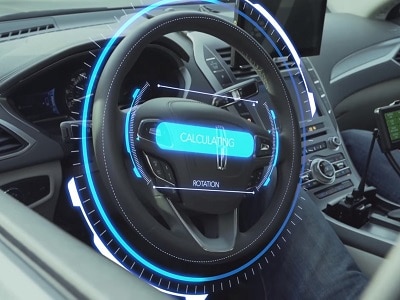
 Carleton University in Ottawa has joined forces with Canadian tech company BlackBerry and the Department of National Defence to pursue research into security threats related to autonomous vehicle technology.
Carleton University in Ottawa has joined forces with Canadian tech company BlackBerry and the Department of National Defence to pursue research into security threats related to autonomous vehicle technology.
In partnership with Transport Canada and Public Safety Canada, the goal of the new project will be to analyze the risks and vulnerabilities associated with autonomous and self-driving vehicles, a looming concern as car companies continue to load up their vehicles with more computerized and Internet-connected capabilities, increasing the potential risk of cyber-attacks.
“We are pleased to support this Carleton University program in their research to help secure connected and autonomous vehicles,” says John Wall, senior vice-president and head of BlackBerry QNX, a software subsidiary of BlackBerry, in a press release. “BlackBerry QNX has taken a leadership role in the connected and autonomous vehicle software and security space and we look forward to sharing our real-world experience with Carleton University.”
Yesterday, Wall took part in an autonomous vehicle demonstration in Ottawa, home to BlackBerry QNX’s autonomous vehicle innovation centre. The street demo, called the first of its kind in Canada, had Ottawa Mayor Jim Watson, Councillor Marianne Wilkinson and Wall travelling around a test loop in a suburban technology park in an autonomously driven Lincoln MKZ.
“Today is the first public fruits of what we’ve been doing,” says Wall, who pointed out that while car companies are themselves building the computerized systems for their vehicles, BlackBerry QNX, with its long history of working with the auto industry, will be supplying the software. “We’re going to provide all the infrastructure, the security, the safety, the redundancy, the communication, how the signals come in,” says Wall.
Security threats to connected vehicles have been a concern for years now, as cars have been further adapted with technologies such as collision warning systems, adaptive cruise control, emergency braking and self-parking systems, all of which use sensors and computers which, potentially, could be hacked.
That scenario was famously brought to reality two years ago when a pair of “white hat” hackers took control of a Jeep Cherokee through a cellular connection in its entertainment system, a standard feature of the vehicle. At a distance and using wireless technology, the hackers were able to control the car’s heating and cooling system, the radio, windshield wipers and, more ominously, its steering, brakes and transmission.
One of the hackers was Charlie Miller, a security researcher formerly with ride-sharing company Uber and now working for its Chinese competitor, Didi Research. Miller has said, “Autonomous vehicles are at the apex of all the terrible things that can go wrong. Cars are already insecure, and you’re adding a bunch of sensors and computers that are controlling them…If a bad guy gets control of that, it’s going to be even worse,” said Miller to Wired.
The new research at Carleton will be led by Richard Yu, professor in the School of Information Technology at Carleton, and will total $974,000 over three years. “This funding builds on the strengths of my research on wireless security and enables this important research to look strategically towards the future.” says Yu.
Below: CES 2017: BlackBerry QNX technology for connected and autonomous cars
Leave a Reply
You must be logged in to post a comment.




 Share
Share Tweet
Tweet Share
Share




Comment